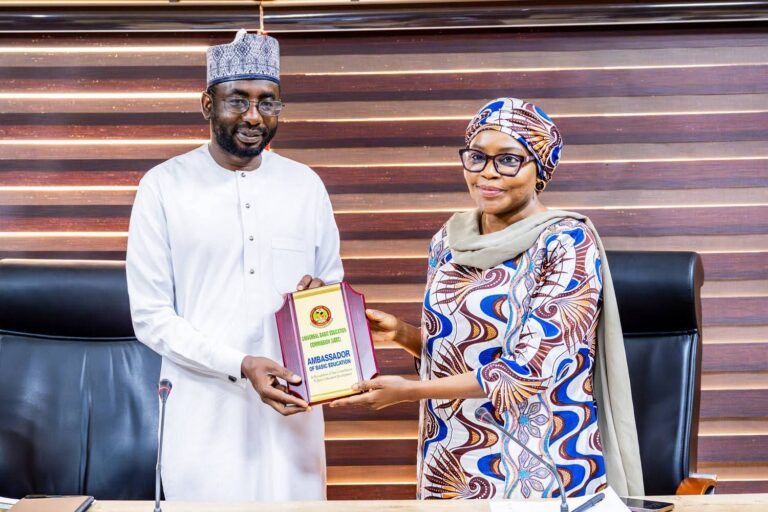The Nigerian government is setting an ambitious target of achieving 95% digital literacy across the nation by 2030. This monumental endeavor is being spearheaded by the National Information Technology Development Agency (NITDA), with a significant interim goal of reaching 70% digital literacy by 2027.
Kashifu Inuwa, the Director General of NITDA, reaffirmed the Federal Government’s unwavering commitment during a collaborative meeting with the Universal Basic Education Commission (UBEC).
“We started this journey in 2023 when President Bola Ahmed Tinubu came on board, and he made it clear that economic diversification and inclusivity are part of the administration’s agenda,” Inuwa stated. He noted that the President outlined these goals within eight priority areas, with “accelerating industrialisation, digitisation, creative arts, manufacturing, and innovation” specifically highlighted as priority number seven.
Recognizing the vital role of digital fluency in achieving these national aspirations, NITDA is investing heavily in the digital empowerment of citizens. This commitment is evidenced by the development of the National Digital Literacy Framework (NDLF), a strategic blueprint designed to align with international best practices.
To ensure the framework addresses Nigeria’s specific needs, it incorporates six core competency areas: device and software operations, information and data literacy, communication and collaboration, content creation, safety, and problem-solving. Inuwa explained that the framework will cover all levels of digital fluency, from basic to intermediate and advanced, making digital skills accessible to every Nigerian, from primary school pupils to working professionals.
Despite current data limitations, NITDA estimates Nigeria’s digital literacy rate at approximately 50%, a notable increase from 44% in 2021, based on extrapolations from the World Bank’s Better Life Report. To bridge this gap, NITDA has been working closely with the Nigerian Educational Research and Development Council (NERDC) to develop a comprehensive digital literacy curriculum for formal education. Inuwa emphasized that this recent visit to UBEC is part of NITDA’s ongoing engagements with key education stakeholders, including the Federal Ministry of Education and the National Universities Commission (NUC), all aimed at advancing digital literacy across all levels of learning.
Beyond curriculum development, NITDA is also fostering collaborations with global platforms like Coursera to train teachers using AI-powered lesson generation tools and provide scalable online training. This builds on previous initiatives, such as the partnership with Nasarawa State University and CISCO in late 2024 to launch the Digital Learning for NSUK (DL4NSUK) program, which aims to enhance digital literacy in tertiary institutions and equip graduates with essential digital and globally competitive skills.
Inuwa stressed that achieving these ambitious goals will require a “whole-of-government and whole-of-society approach.” He highlighted the necessity of bringing together education stakeholders, technology providers, state governments, and international partners.
Responding to NITDA’s efforts, Hajiya Aisha Garba, Executive Secretary of UBEC, confirmed that the Commission has officially received the digital literacy curriculum developed by NITDA and NERDC and has commenced internal review processes. While acknowledging the curriculum as robust and forward-looking, she stressed the need for simplification to suit early learners and teachers. She also pointed out challenges such as curriculum overload, limited teacher capacity, and inadequate infrastructure as key barriers to effective implementation.
Garba pledged that UBEC, in partnership with the State Universal Basic Education Board (SUBEB), will lead efforts to equip schools with computers and solar-powered infrastructure to support genuine learning. “We’re committed to working with NITDA and NERDC to refine the curriculum, train teachers, and ensure effective delivery. Let us align the technical vision with grassroots realities to make a lasting impact,” she concluded.
To formalize the path forward, a joint inter-agency committee has been established. This committee will develop strategic plans to ensure the effective rollout of the digital literacy initiative, equipping young Nigerians with the essential digital skills needed to thrive in an increasingly dynamic and technology-driven global landscape.
What do you think are the biggest challenges Nigeria will face in reaching its 95% digital literacy target by 2030?


